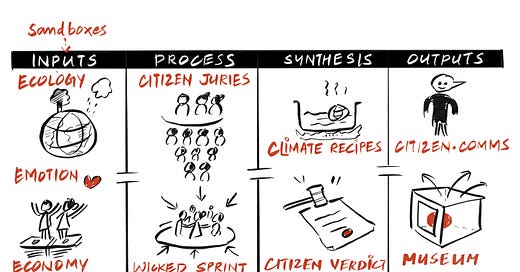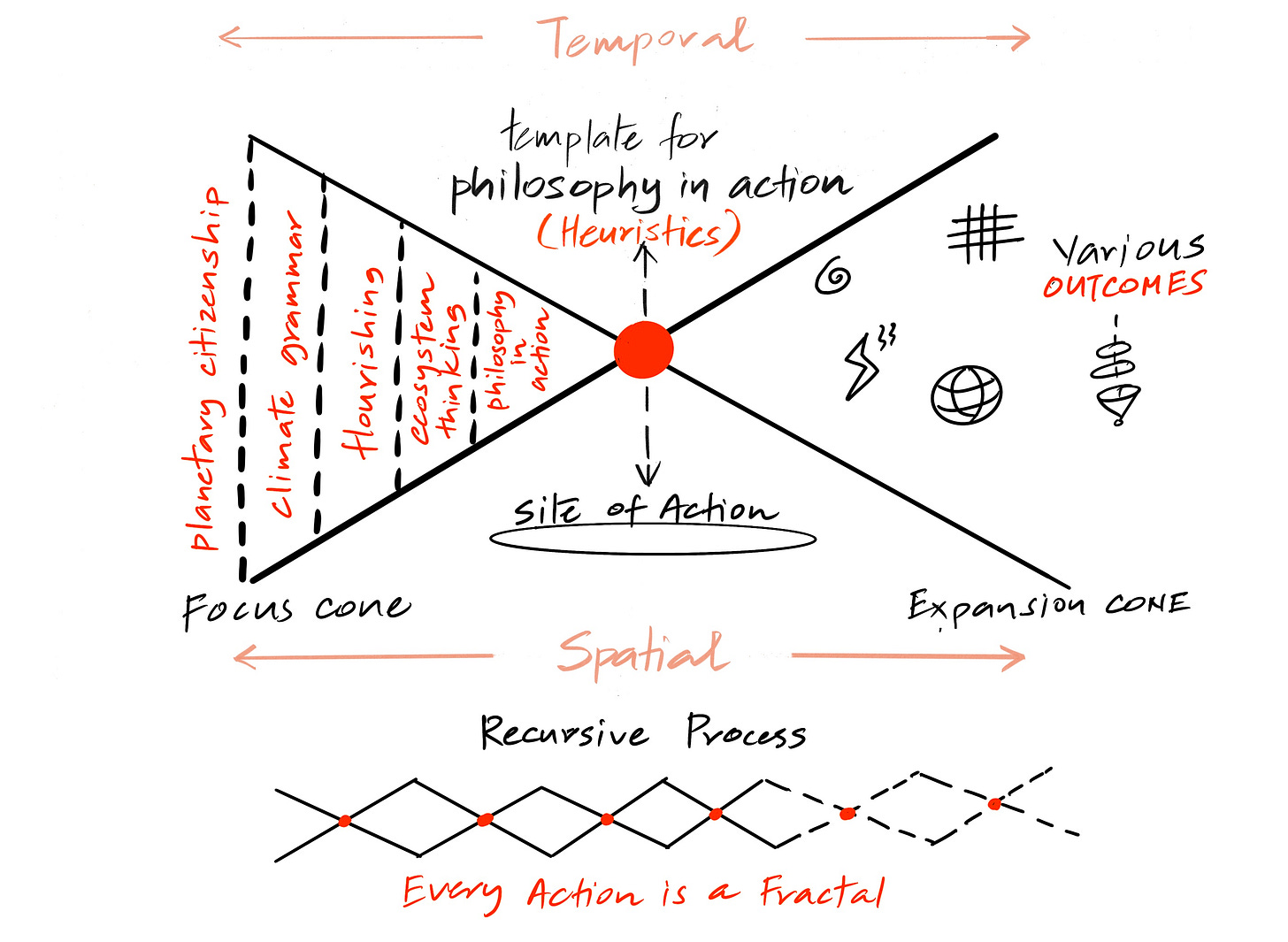The Wystem: Computational Thinking for Society
In today's rapidly evolving planetary realities, where data and technology reshape our daily interactions, the social sector stands on the brink of a transformative shift. This transformation should be driven by computational thinking, a methodology that extends beyond the confines of science and technology into the realms of social impact.
Enter the Wystem--a framework for public problem-solving.
The Wystem integrates computational concepts like social recipes, interfaces, and exchanges, making them accessible and actionable. By doing so, it aims to transform the abstract complexities of social issues into manageable, scalable solutions.
This week's Messenger reintroduces the Wystem as it was developed over the last few weeks along with links to the original essays.
The Modern Socratic Dialogue: Computational Thinking for Today
Reflecting on Socrates' dialogical approach, one can appreciate its relevance to our times. Socrates harnessed the power of questioning to unearth profound truths and challenge societal norms. Today, we channel a similar energy through computational thinking, dissecting vast social challenges into manageable, analyzable components. This evolution from philosophical dialogue to computational analysis represents a natural progression--technology as the new arena for philosophical inquiry. Just as Socrates sought the essence of virtues such as justice, we now seek the underlying patterns of social phenomena, aiming to construct robust solutions that stand the test of complexity and time.
Wystem: A System for Wicked Problems, Part 1
Socrates used to say he was the midwife of wisdom. Talking to him made you wise(r). No wonder he was executed for corrupting the minds of the youth. How exactly did he evoke that latent wisdom? What was so enlightening about the Socratic method? There are many answers, of which one is the skill with which he used reason and argument. Remember that syste…
Decoding the Social Matrix: Recipes, Interfaces, and Exchanges
At the core of the Wystem are three pivotal concepts: social recipes, interfaces, and exchanges. Each serves a unique function in crafting a cohesive social strategy. Social recipes transform complex actions into simple, repeatable steps--much like a chef relies on a recipe to consistently recreate a dish. This analogy extends to social projects where clear, concise instructions are paramount for replicability and scalability.
Meanwhile, interfaces in the Wystem ensure seamless interactions between diverse systems and stakeholders. These are the conduits through which information and resources flow, analogous to the nerve synapses in our bodies that transmit signals swiftly and efficiently.
Exchanges go beyond mere transactions; they are the lifeblood of social ecosystems, facilitating the flow of value and impact across the network. Through these exchanges, every interaction enriches the collective, weaving a fabric of shared purpose and mutual benefit.
Wystem 2: On Ecosystem APIs
Don’t like reading? Want to watch instead? We have a video for you: Need something to listen to while going from place A to place B? Forget the video and plug into the audio stream 📻.
Technological Integration and Its Challenges: The Role of EPIs
Incorporating 'ecological technology' such as Ecosystem Programming Interfaces (EPIs) can significantly amplify the Wystem's effectiveness. EPIs do not merely facilitate data exchange; they enable diverse systems to interact with unprecedented coherence and flexibility. Imagine a scenario where NGOs, government agencies, and local communities communicate effortlessly, each node of this network both contributing to and benefiting from a shared digital infrastructure.
However, the path to technological integration is strewn with challenges. Privacy concerns, data security, and the ethical use of technology are just the tip of the iceberg. Each step towards integration must be navigated with a keen awareness of these issues, ensuring that technological advancement does not outpace our ethical considerations.
Wystem 3: Recipes
Start with the video version👇🏾 Share the Messenger with your friends:Thanks for reading The Messenger! Subscribe for free to receive new posts and support our work. and continue reading below 📖
The Wystem in Action: A Symphony of Social Good
Envision a community where the Wystem is fully operational. An NGO focused on education reform utilizes the platform to share insights and resources with a health advocacy group, aiming to address the holistic needs of the community. Through the Wystem, these groups coordinate efforts, track progress, and measure impact in real-time. The potential for transformative change in such a scenario is immense--where every initiative is interlinked, creating a multiplier effect of benefits.
Wystem 4: EPIs
Don’t have too much time? Watch the video👇🏾 and read the summary. Summary We live in a world deeply intertwined with the written word, where ancient inscriptions like those on Ashoka's Pillars not only convey historical narratives but also showcase exquisite artistry, blending visual art with textual communication. The Sanskrit term "lipi," which denot…
Concluding Thoughts: The Future of Computational Thinking in the Social Sector
The Wystem represents not just a technological shift, but a philosophical one. It invites us to reimagine how we address societal challenges, advocating for a future where social interventions are as precise and predictable as engineering projects. As this innovative platform gains traction, it promises to redefine what's possible in the social sector, paving the way for solutions that are not only effective but enduring.
In conclusion, as we forge ahead, we hope to channel the spirit of Socratic inquiry for an era of collective wisdom by harnessing the power of computational thinking to craft a better world.










